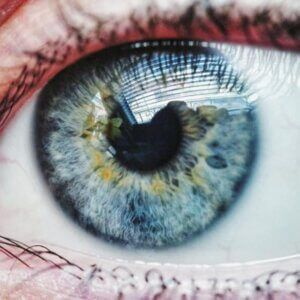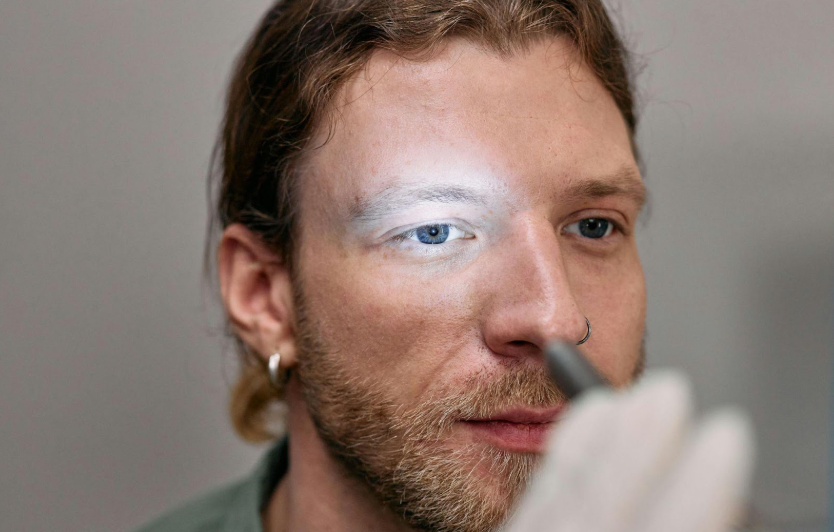7 Corneal Problems That Can Affect Your Vision
The cornea is an essential part of your eye that refracts light to help create the images you see. It covers the iris and pupil, making up around two-thirds of the eye’s focusing power. Unfortunately, this vital part of your eye can become damaged and lead to eye problems. To protect your sight, we’ve compiled this list of seven corneal problems that can affect your vision.
Eye conditions that can affect your vision due to corneal problems include:
- Corneal abrasions and recurrent erosions
- Fuchs’ dystrophy
- Corneal infections
- Bacterial keratitis
- Keratoconus
- Pterygium
- Trichiasis
Watch our video with Dr. Holt to learn more about corneal eye diseases!
Corneal Problems That Can Affect Your Vision
1. Corneal Abrasions and Recurrent Erosions
A damaged cornea due to abrasions is one of the most common problems patients face. These injuries on the surface of the eye are caused by foreign objects such as sawdust or fingernails. They can be incredibly painful and cause serious issues. Fortunately, they often heal rapidly when appropriate care is taken.
Recurrent erosions are generally seen after a previous abrasion or trauma to the eye. They occur when the surface of the cornea becomes loose and is easily peeled off in a very dry environment, such as when patients with severe dry eyes are sleeping. If the surface of the cornea is more tightly attached to the inside of the eyelid then it may peel off when you wake up and open your eyes. This can also be very painful.
There are a variety of nonsurgical treatments for corneal abrasions and recurrent erosions. Treatments include artificial tear gels or ointments that can help prevent erosions from recurring in the future. However, surgery may become necessary if nonsurgical options don’t prove effective.
Click here to learn more about corneal abrasions!
2. Fuch’s Dystrophy
Fuchs’ dystrophy is a fairly common corneal disease that affects the innermost layer of the cornea, called the endothelium. When healthy, this layer pumps fluid from the cornea to keep it clear. Fuchs’ dystrophy causes these cells to die off, allowing those fluids to build up resulting in the cornea becoming puffy. This can cause blurred vision where everything looks hazy.
Fuchs’ dystrophy comes in two stages. During the first stage, you may notice some haziness in the morning that clears up throughout the day as the excess fluid dries up. By stage 2 , you will notice that your vision stays blurry all day. This is because so much fluid has built up overnight and not enough can dry during the day.
Painful blisters may also form on the cornea during the second stage. These blisters grow larger over time and possibly burst, resulting in eye pain.
People tend to start developing Fuchs’ dystrophy around age 30 or age 40 but may not notice a problem until around 50. The condition may require a cornea transplant due to the cornea becoming swollen and developing dots on the inside of it. Corneal transplants are the most common type of transplant according to the National Eye Institute , making them very routine for our skilled surgeons.
For more reasons why you may require a cornea transplant, click here !
3. Corneal Infections
Many types of bacteria, viruses, fungi, and parasites common to other infections can lead to serious eye conditions, including corneal ulcers and ocular herpes. These conditions are dangerous and can cause serious vision issues or even rapid loss of vision, particularly if left untreated or not properly treated.
Many medical conditions, including infection with bacteria and viruses, and treatment with certain drugs, can adversely affect the health of your eyes. Even sexually transmitted diseases like herpes, syphilis, and HIV/AIDS can affect the cornea and overall health of the eyes.
4. Keratoconus
Keratoconus is an abnormal weakening of the cornea which will progressively cause thinning of the cornea in both eyes. The thinning starts in the center of the cornea and bulges forward in a conical fashion, creating an irregular astigmatism . This form of astigmatism is uneven in multiple directions rather than evenly shaped like regular astigmatism.
Keratoconus may need treatment with:
- Prescription glasses and soft contact lenses
- Gas-permeable contact lenses
- Scleral contact lenses
- Hybrid contact lenses
- Intacs
- Collagen crosslinking
- Cornea transplant and penetrating keratoplasty
To learn more about these treatment options for keratoconus in Knoxville, click here !
5. Bacterial Keratitis
Bacterial keratitis is an infection of the cornea. It usually develops quickly and can cause blindness if left untreated. There are many different bacteria that cause keratitis, but the two most commonly responsible for cornea infections in the U.S. are Staphylococcus aureus and Pseudomonas aeruginosa .
The two main causes of bacterial keratitis are improper contact lens use, especially extended-wear lenses, and eye injuries. Wearing contact lenses for too long or not caring for them properly increases the risk of a corneal infection.
6. Pterygium
Pterygium is a fibrous, fleshy growth on the eye that extends from the conjunctiva to the surface of the cornea. They typically begin forming on the inner portion of the eye and slowly progress inward toward the center of your eye. A pterygium can become significant enough to affect your vision if it grows to the center of the cornea. On examination under the microscope, a severe pterygium can look like a wing.
Dryness and ultraviolet light exposure are contributing factors to their development, which is why they are most common in patients who are exposed to lots of sun, wind, dust, or harsh climates. We recommend patients wear sunglasses when outdoors, use artificial tear lubricating drops (but not drops that “get the red out”), and limit exposure to irritants in the environment.
Click here to read our blog on pterygium !
7. Trichiasis
Trichiasis is when the eyelashes point toward the eye and scratch the cornea. While this is a disease of the eyelids, damage can be done to the cornea. This uncomfortable condition can lead to chronic inflammation or infections. Trichiasis treatment involves either redirecting eyelash growth, removing the eyelash follicle, or both.
If the trichiasis is limited to a single eyelash or just a few eyelashes, your Baptist Eye Surgeon ophthalmologist may remove the problem-causing lash with forceps. However, this may only be a temporary solution if the eyelash grows back again in the wrong direction. If this happens, or if you have multiple lashes growing toward your eye, they may recommend surgery to remove them permanently.
Are you struggling with a corneal problem in Knoxville, TN? Contact us today to schedule your appointment!
Your corneas face multiple threats as you go about your daily life. Corneal abrasions and recurrent erosions are some of the most common threats. Fuchs’ dystrophy is a common eye disease that causes fluids to build up on the cornea. Corneal infections can have a variety of causes leading to vision problems.
Keratoconus causes your eyes to become thinner, requiring treatment. Bacterial keratitis is an especially dangerous infection that can eventually cause blindness. People in warmer climates face bigger risks of developing pterygium. Trichiasis can eventually scratch the cornea, so it’s important to seek treatment immediately.
Baptist Eye Surgeons is an ophthalmological practice in Knoxville, TN, Morristown, and Sevierville. Give us a call at 865-579-3920 for more information or to schedule an appointment .
*This blog has been updated since its original publication on July 6, 2018.


MORRISTOWN
SEVIERVILLE
TENNESSEE VALLEY - LASER CENTER
TENNESSEE VALLEY - EYE CENTER



